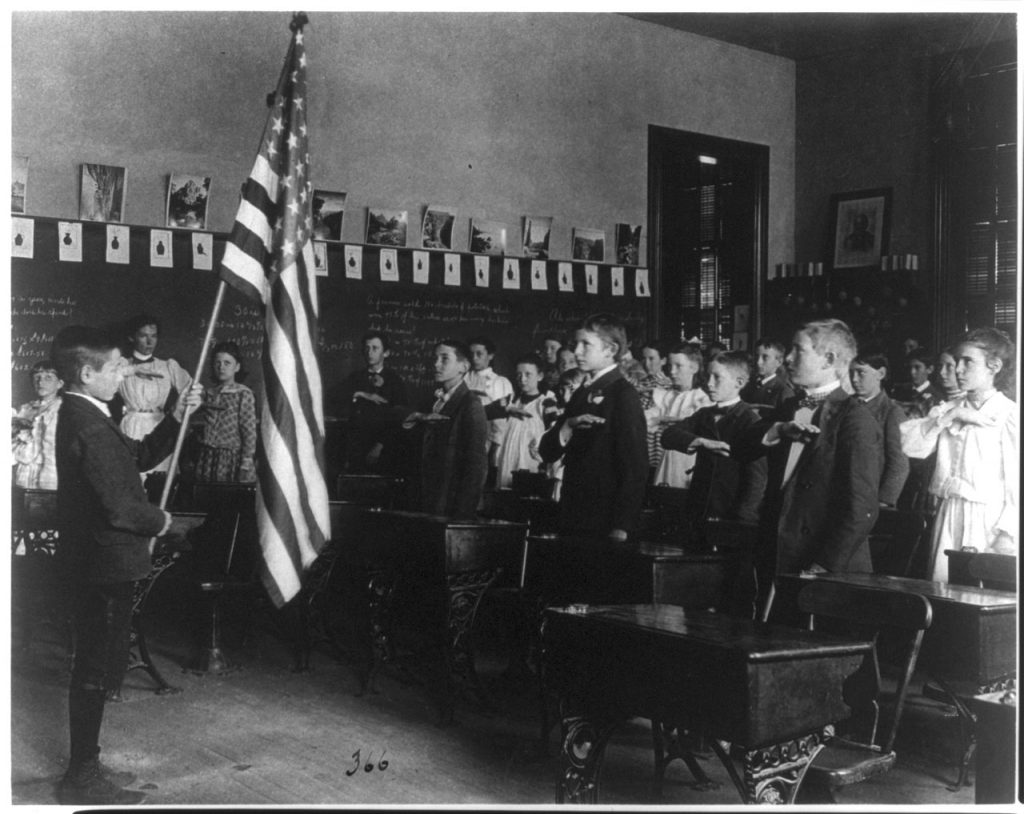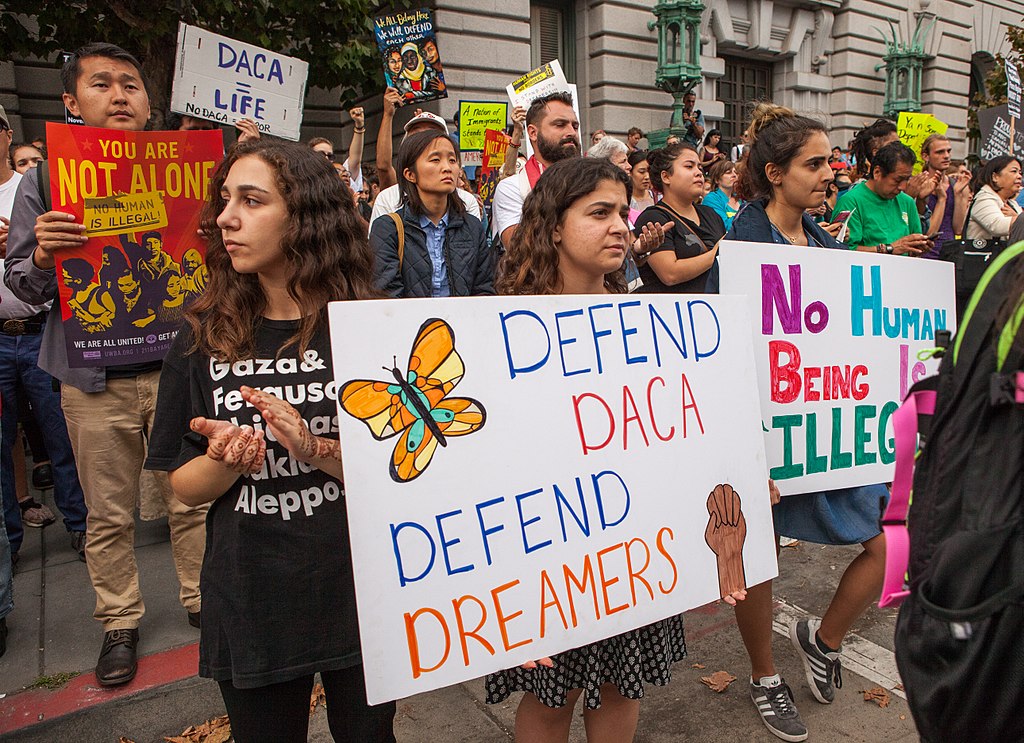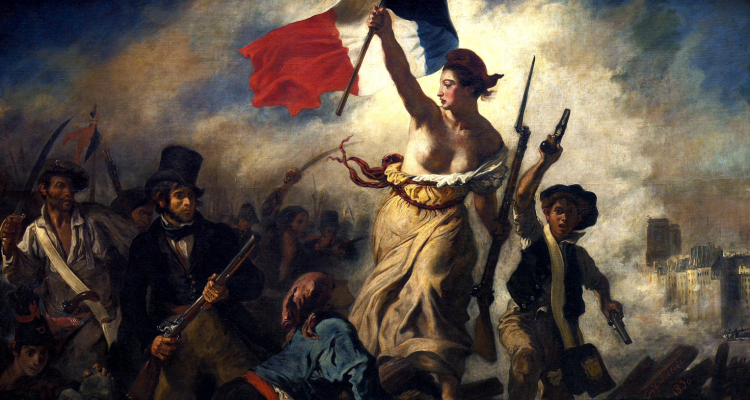By: Patrick W. Zimmerman
President Trump has declared himself a nationalist. Great. What the hell does that mean?
{{cue rousing introductory music (alt. vers.)}}
We’re glad you asked!
What’s a nation?
Before you can define nationalism, you’ve got to first figure out what it is to be a nation (a word applied to groups as varied as “The Malaysians” and “Pittsburgh Steelers fans”). A nation is a community, imagined, face-to-face, or a combination of the two. It unites and divides by definition: including some people and excluding others. A nation-state is, then, a political state theoretically made up of one and only one nation. A hypothetical Boblandia made up only of people named Robert and Roberta.
This is a relatively new concept, born out of the 18th & 19th Century “Age of Revolutions,” and it has mostly replaced allegiance to a specific sovereign as the most common way to organize political borders. An important note: it is anachronistic to apply the concept of nation to anything prior to the French Revolution (including the American War for Independence). Italians existed (to give one example), but the idea of Italy (including Tuscans but not Tirolians, Sardinians but not Corsicans, Sicilians but not Savoyards…) most certainly was, as Metternich put it a “geographical expression” rather than a nation, filled with people who did not think of themselves as belonging to one community or even speaking one language.
What did a world not based on nation-states look like? It was characterized both by extremely non-contiguous borders (which seem to make little sense to modern eyes) and by vast multi-ethnic (and linguistic) empires. Today, the nation is one of the more common political organizing principles, along with religion (an older model, most obviously Christiandom and Dar al-Islam), and whatever-the-hell-we-can-conquer (a much, much, much older model).
What, then, is nationalISM?

“I pledge allegiance….to the flag…” (Photo credit – Library of Congress).
In short: a nationalist believes that the nation-state is the best way to organize humanity and that, to the greatest extent possible, all nations should have states and all states should be comprised of a single unified nation. Nationalism is an ideology of allegiance (love, affection for, feeling of belonging…) to a particular nation.
If this sounds like the natural state of things, totally normal and obvious, then (congratulations!) you are to some extent a nationalist. You’ve absorbed the basic premise: that nation-hood is the way to divide people.
You’ve also just figured out one of the principal drivers behind human conflict in the last two centuries. The Middle East? Both World Wars? The breakup of Yugoslavia? All caused, in some degree, by rivalry between different national visions. Give yourself a gold star!
Why is nationalism associated with conflict? Because as an ideology and political movement, nationalism is fundamentally a contest to define the nation. Who’s in, who’s out….and who’s in the way.
At its core, nationalism is a question of identity, and as such is as constructed as much on what people believe to be true about a nation as actually is. Mythmaking, particularly about a national history, is a central part of any nationalist project. An origin story serves to add legitimacy to a claim of nationhood (the more primordial the origin, the better) and provides a series of national heroes to populate the legendary pantheon, making a community feel special (and a wee bit superior) in relation to others. News flash: people like to feel special.
These identities change over time, and one person can have several, depending on the context; you can be simultaneously American and Southern and Georgian and Atlantan. This is not simply the normal order of particular identities becoming more popular over time (though that does happen, like any other ideology), but also how certain imagined nations are filled with meaning. The change of definitions over time (who’s in, who’s out) strongly colors the meaning, appeal, and repulsion of any given nationalism. For one over-the-top smack-you-over-the-head example, what it meant to be a German nationalist changed radically between 1917, 1935, and 1989.
Trump’s nationalist declaration: Why words (and ideology) matter

Immigrants: Welcome or not? (Photo credit – Pax Ahmisa Gethen).
Nationalism, like all good isms, comes in various flavors (no, “patriotism” isn’t one of them; it’s just another name for the same ideology, but with a more positive spin and less implied threat). In the ideology’s more benign forms, nationalists espouse a positive, expansive vision, holding up the idealized version of the nation as a goal towards which newcomers and existing citizens should strive. No definition of a community, however, can logically exist without also labeling some group (or ideology) as not belonging. In its more toxic articulations, nationalism can stir a group of people to violently reject the Other, focusing much of the attention of its members on those unworthy of inclusion.
The immigration debate is the most obvious and direct effect of this kind of nationalist othering on America of 2018, with President Trump’s demonization of non-white immigrants (in general) and portrayal of the current caravan of Central American refugees as an “invasion” (in particular) serving to further strengthen the discursive links between American nationalism and white supremacy.
Many Gang Members and some very bad people are mixed into the Caravan heading to our Southern Border. Please go back, you will not be admitted into the United States unless you go through the legal process. This is an invasion of our Country and our Military is waiting for you!
— Donald J. Trump (@realDonaldTrump) October 29, 2018
It is less of an issue that Trump is calling himself a nationalist than the meaning that his ideology gives the term. Most American politicians wave flags, talk about the “American Dream”, and use explicitly nationalist imagery in their political campaigns (a pretty standard concoction of national symbols and appropriation of whichever myths best suit the platform on which they are running). JFK’s “Ask not what your country can do for you…“ speech was overtly nationalist, to cite one obvious example. However, when a definition of nationalism that treats the “us” in U.S.A. as explicitly racially (white), linguistically (English-speaking), and religiously (non-Muslim) restricted is elevated to the platform of the Presidency, that definition will tend to become dominant. As an example, the word “security” tended to be more associated with shopping malls before the George W. Bush administration. However, after September 11th, his use of Security to mean “national defense, specifically against terrorism” was novel and changed the meaning of the way the word was understood and used, both by his supporters and his opponents.
Trump’s definition of the American nation; right-wing, nativist, restrictive, and defiantly belligerent, was already (and inevitably) gaining prominence. His adoption of the term “nationalism” probably won’t materially change his policies, his worldview, or those of his supporters. However, it will make those ideas more mainstream. When the President of the United States repeatedly and clearly defines the American People as comprising of these races and not those, these political beliefs and not those, it becomes much more socially acceptable for others to openly express and act on hatred of the other, the non-believer, the interloper.
As we have seen over the last week, when once-fringe ideologies such as white nationalism become part of the normalized (if not “acceptable”) political milieu, people will feel emboldened to act, to take it upon themselves to purify the body politic, to cleanse the nation. Sometimes through policy. Often through violence. The specific targets from among New American Nationalism’s lineup of Enemies of the People (Democrats & CNN, the Jewish-migrant-liberal global conspiracy) were relatively unpredictable, but the normalization of this new brand of American nationalism, so focused on the threat of the Other, made eventual violence nearly inevitable.
Words matter in politics because they represent ideologies. The symbolic battleground of rhetoric is never isolated from the real-world context in which it is fought. When a President mobilizes his base of support around the sense of an existential threat to their livelihoods and their very way of life, one cannot pretend that he is only responsible for those who attempt to address that threat through the ballot box.
Why does it matter that Trump says he’s a nationalist? Because who he is will change the very definition of the American nation. If Trump becomes identified with nationalism (which will happen if this becomes a theme of his), then Trumpism and nationalism will more and more become the same thing. Hate will become even more mainstream. And we will have more mail bombs, more shootings, more domestic terrorism, and more tragedy.

No Comments on "Nationalism: What is it good for?"